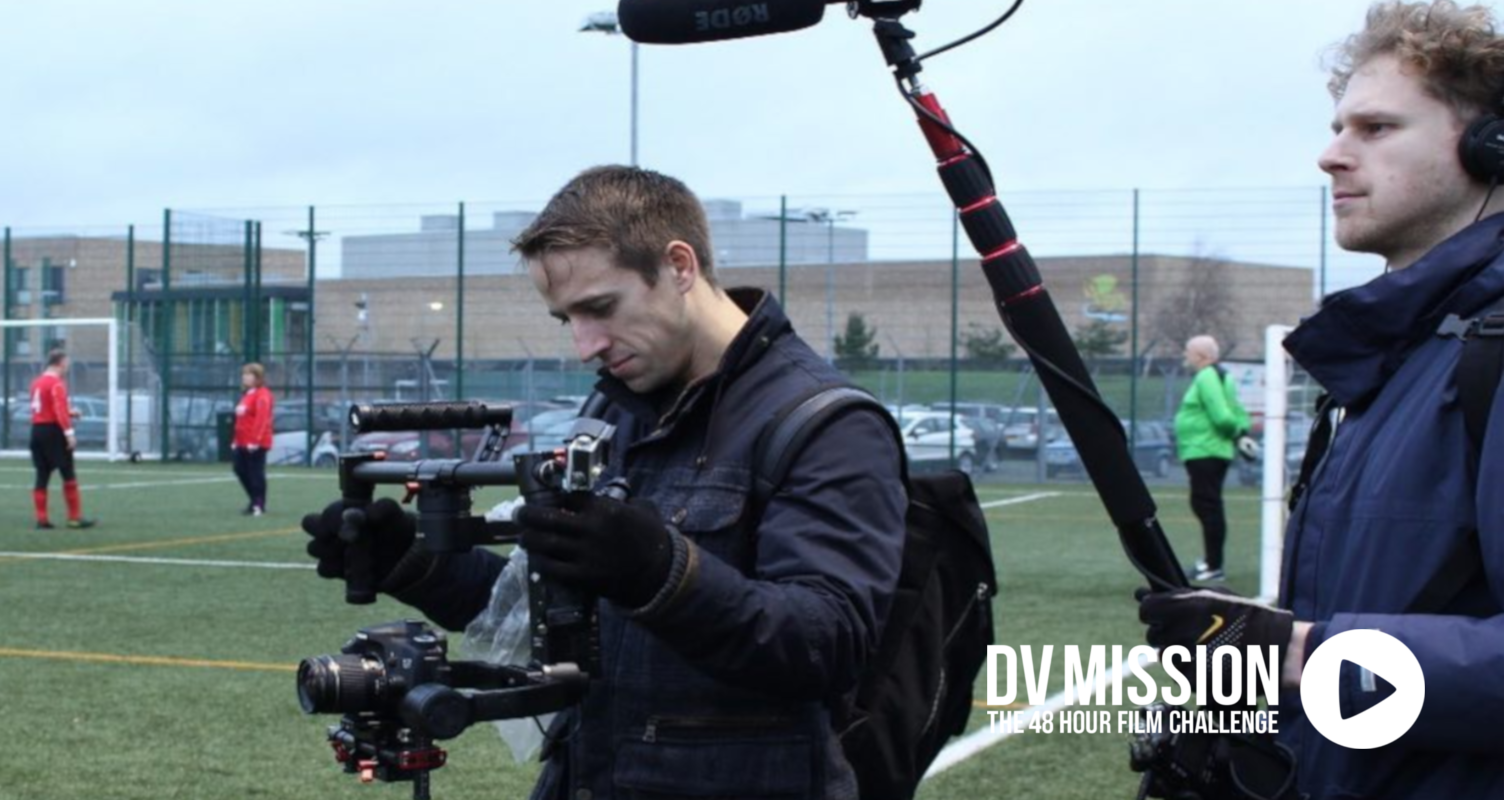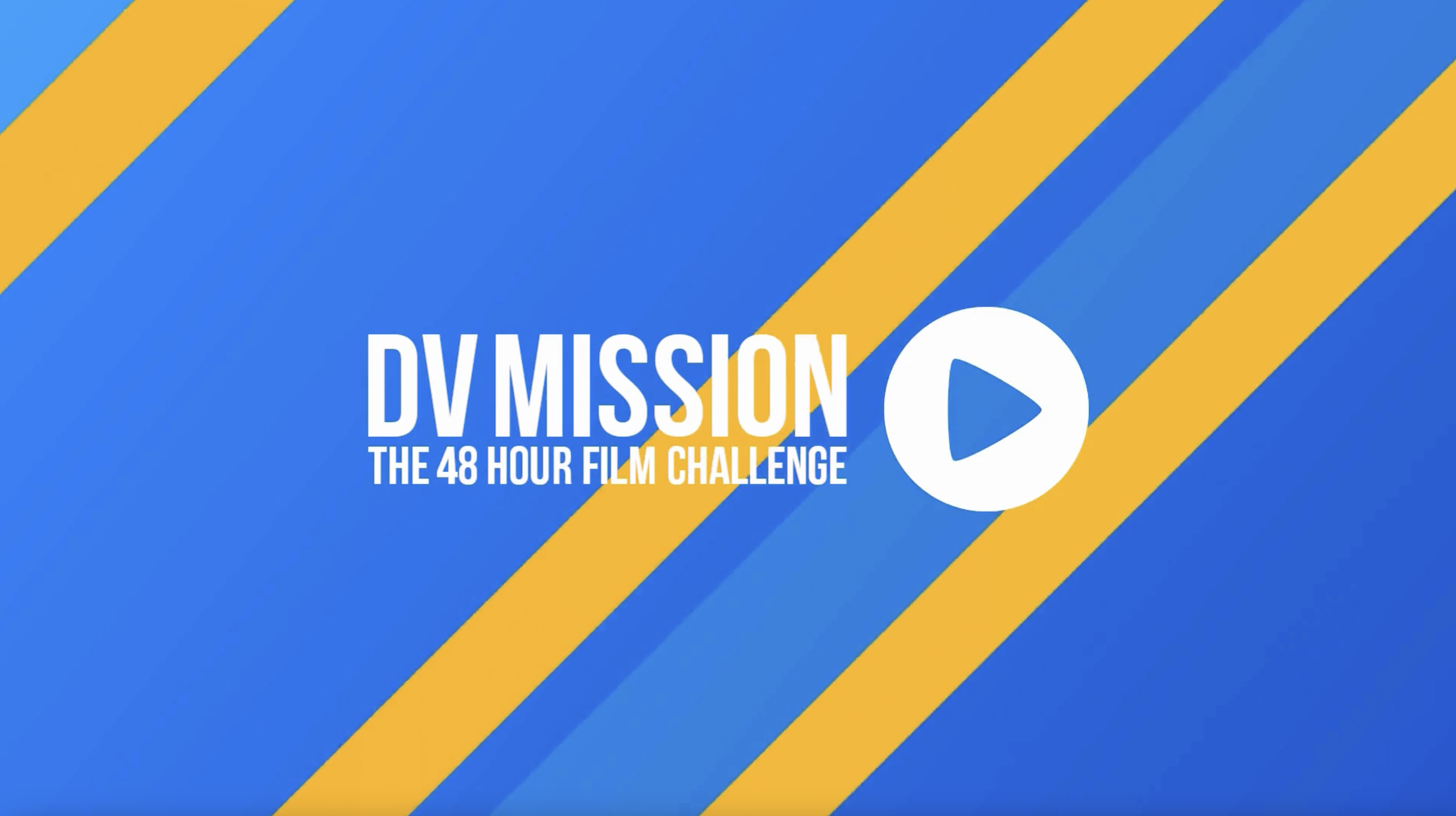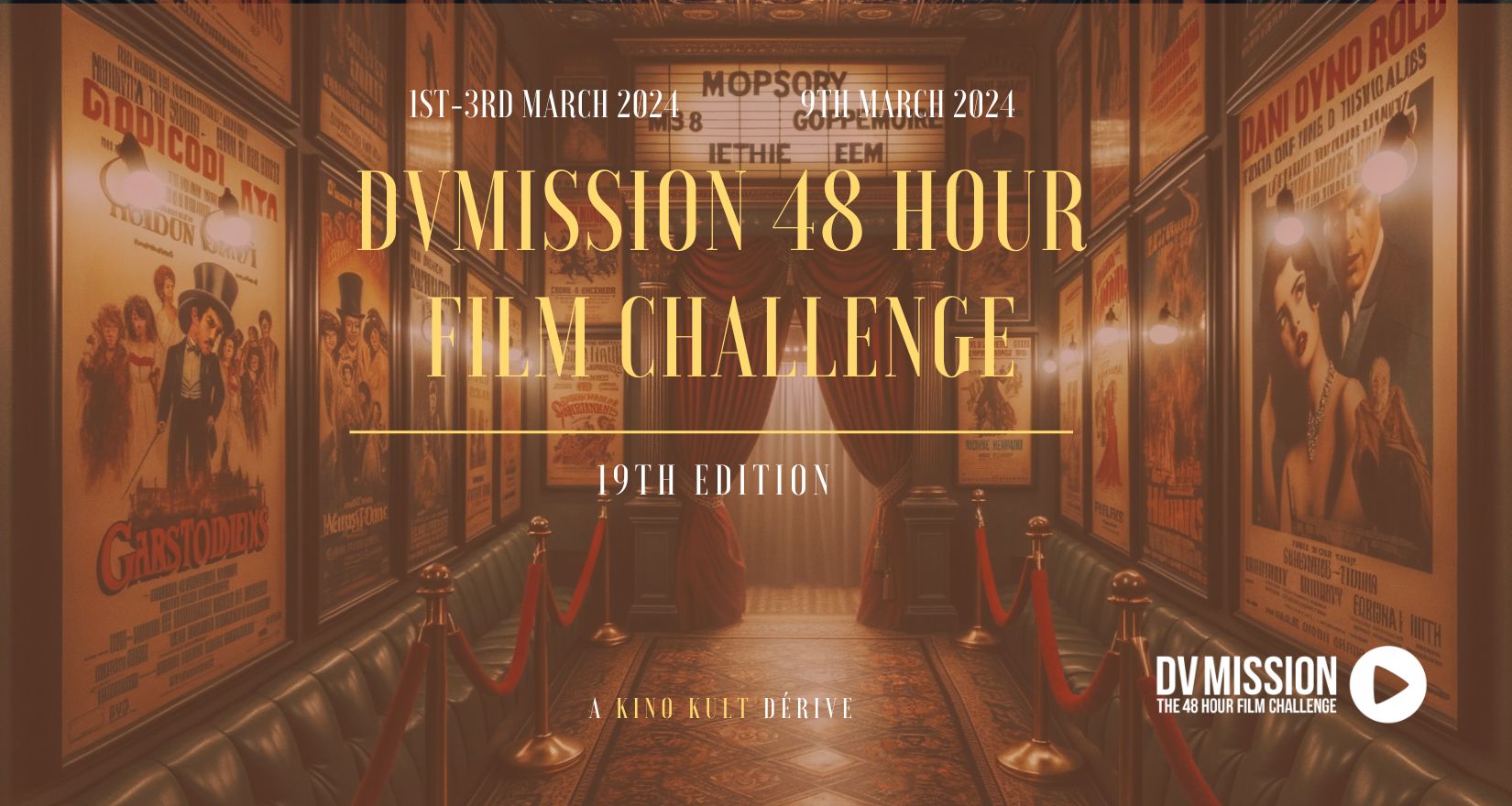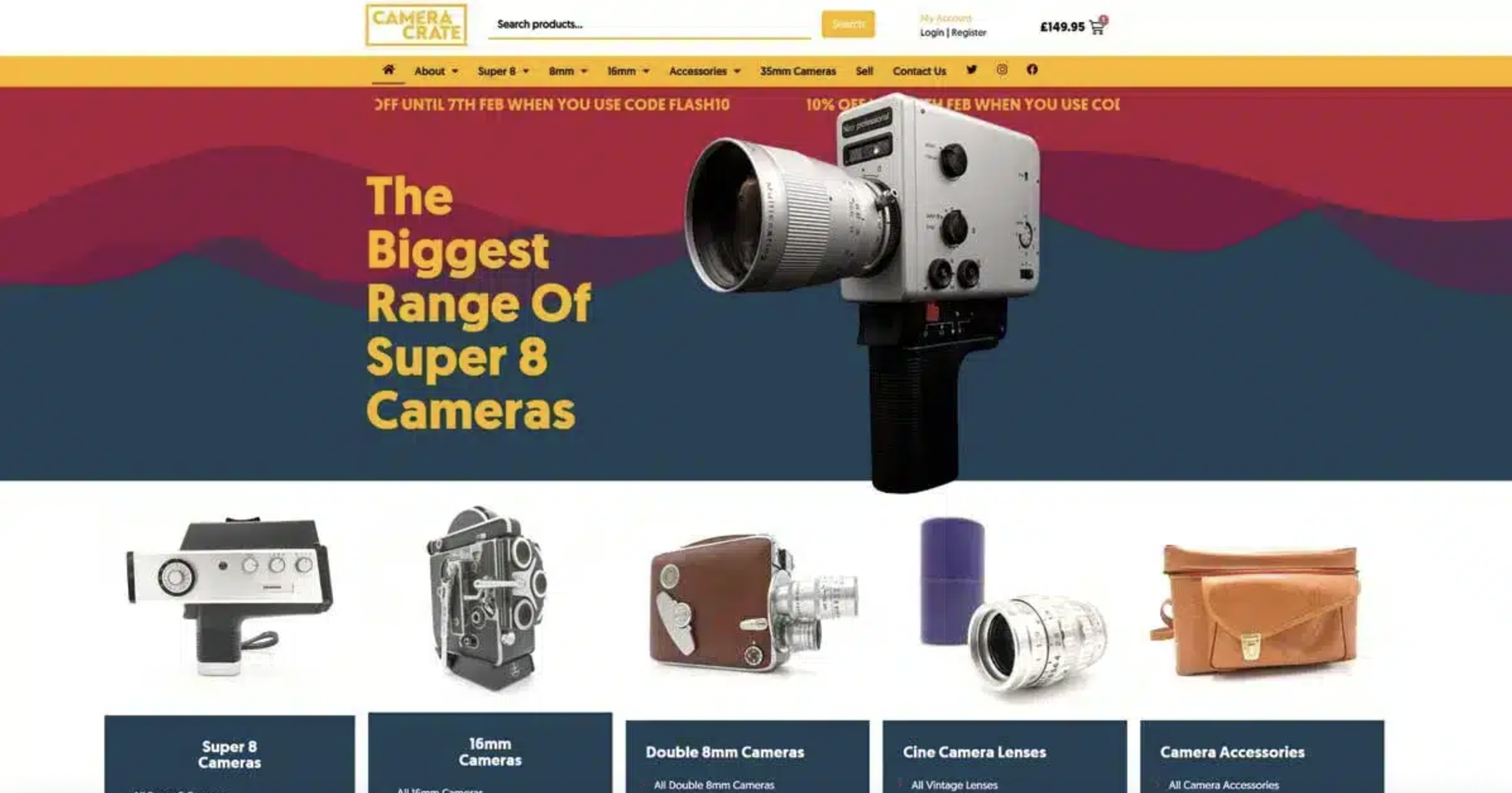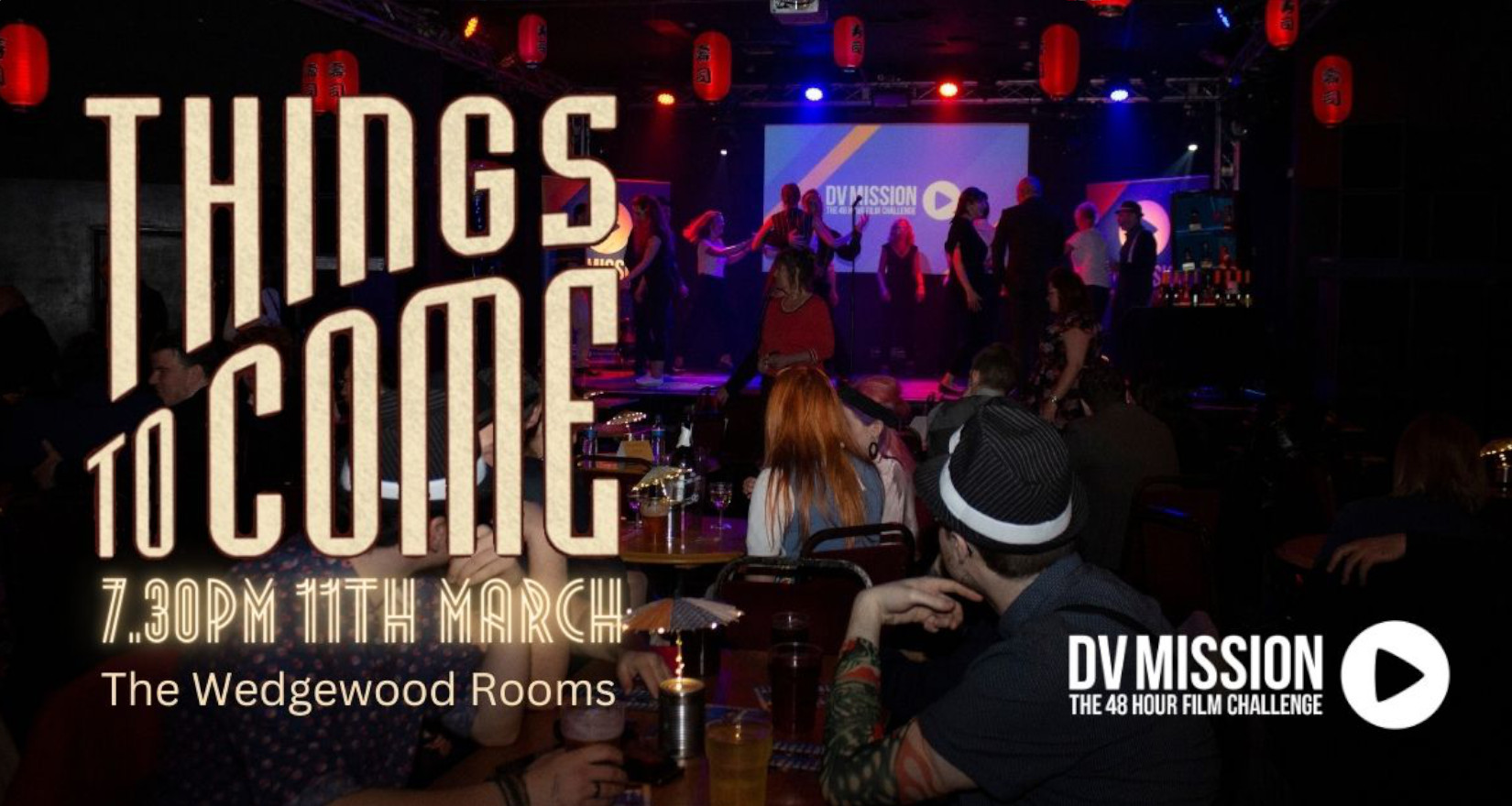I went out on a Saturday morning to meet with James, Rupert, Becky and Paul, AKA The Animus Workshop. They first took part in DVMISSION in 2018. They discovered the 48-hour film challenge on Facebook after a quick browse online in search for short film festivals in 2017, a year later, they gave it a go.
As a group of friends, they tell me of how they’ve always enjoyed making films but day jobs have restricted their ability to do so. James begins, “It’s hard for us to get anything done over a long period of time just because of finding time to get together. So, with this we thought, it’s a short period of time, we can all make time to be there.” But it’s not just that as Rupert explains. “It’s also to see where we’re at. To see what we’re capable of, what we can do, because it’s good to have parameters like that. Because in our other projects, where we don’t have deadlines necessarily it can just keep going forever.”
Speaking on how DVMISSION has helped them steer towards the industry they want to be in, they say, “I think it’s a good experience on our CVs and things like that. But we’ve always had that passion for this sort of thing, that’s why we got together and started making films.” They all, as individuals have different jobs, some in the industry and some not but the main goal is to make that transition, especially for James. “I’m currently in the RAF so it’s a bit harder for me because I’m away quite a lot. I want to try and move away from the RAF and into the visual effects side of things, so it was a real turning point for me doing this [DVMISSION] because it was good fun and something I could be good at.”
“We had 48 hours to go from nothing to a fully realized 2 minute short.”
Preparing for a short film you have got to make in 48-hours having no idea as to what the theme or genre of the film has to be is a difficult process. Once you know what the theme is, what’s next? “Beforehand we thought about locations we could use, that we thought if it did fit into the category then we could wrangle filming there. Rupert does most of the writing with anything we do, we sat round the table coming up with separate ideas, but when you already have those stipulations and you breakdown what you’ve already got, it felt like there was only a few ideas that would actually work so it adds a lot of pressure but luckily we were able to come up with something fairly soon.” The team began talking about how they had other things that worked in their favour once the genre was announced and that was having a couple on the team together. I was intrigued because this of course meant that as well as planning filming and editing they were also acting. They laughed “Oh it was a nightmare, yeah.”
From the beginning to end of the process they organised and planned the 48 hours as much as possible. “We live in the New Forest area, we had a good idea of the area and bits of it we might use. From that we just planned as much as we could thinking about time as well. Once we had a good skeleton we just went for It.” Setting little deadlines along the way they said, “we gave ourselves Friday evening to come up with the idea and all of that. Saturday, it was getting all the filming done on Saturday and Sunday was supposed to be post. But in the end, we had drone issues…”. I quickly learnt that you can plan for only so many things, and the weather wasn’t one of them. “It rained all day Saturday, so basically we had to take a tent with us to put the equipment in, run to where we wanted to shoot, but the tent got blown away and…” they laughed. It didn’t go quite as planned in terms of their deadlines, the team ended up filming on the Sunday, cutting it close to the deadline!
Passing on their top tips they said “Be very flexible, if something goes wrong…work together to fix it. Definitely the more the merrier as well, even if someone isn’t in to filming, just to lend a hand. Even family members holding things, whoever is around, because you will need them.” They continued, “make sure you plan for food, you can’t waste any time, you really need all of those hours. Oh, and wear nappies, toilet breaks are out, there’s no time for that.” They all laughed, reminiscing on their weekend of making their short film.
For teams like The Animus Workshop, film challenges like DVMISSION are important. “They give you a really good opportunity, everything you build on and do, it gives you an excuse to put it all together to a deadline and see what happens. You get to test all of your skills and see what kind of finished products you can come up with and building a portfolio as well.” Pauls adds, saying, “And to work on something that isn’t our idea as such, we write mainly for us and play around, whereas we know this is something an audience is going to watch and it’s a brief given by someone else. It helps take us in a different direction than something we may normally do. You’re getting instant feedback on where you’re at.”
DVMISSION has benefits for teams but also for those people as individuals. “Even just to get feedback from the other people taking part, to see how they dealt with the same process and learn from them. It’s useful in that sense, because it’s such an intense process just to see how other people managed it. It’s a good community event, it brings everyone together.” That community feel DVMISSION has seemed to be something that really stood out to this team. “There was a big social media presence, so everyone was on the same hashtag, uploading their pictures as they went, and we would keep a keen eye on that as we were going, seeing what other people were up to. It was really nice actually. The community was there before we even met each other on the night.”
It is without a doubt that the growth of the creative industries is enhanced by local challenges like DVMISSION. In discussing this with The Animus Workshop, they said, “I guess it gets more people involved in similar things, we entered ours [short films] into other competitions so in a sense it makes you branch out and look for other opportunities in the industry, just by getting good feedback.” Becky continued the discussion, saying, “I worked in. school at the time and they had a film club, so I was giving them talks in assemblies on it, it had impact on the potential ideas of having a film festival at the school. So, I think the people who come together for the event [DVMISSION], they take it away and it feeds into what they’re doing in daily life.”
In final thoughts about DVMISSION, they said “People who are already in the industry and make TV or Films, they now how hard it is to make something and how long it takes, so that automatically gives you something unique on your CV, to say you can do that in 48 hours. We wouldn’t have had that otherwise.”
Check out the teams work at www.theanimusworkshop.com
By: Lucy Goodyear
